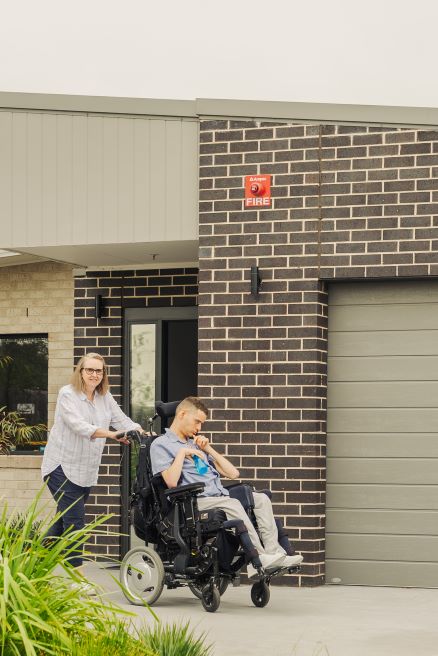The Employment Handbook resource supports people with Cerebral Palsy (CP), their families, networks, and employers in understanding inclusive employment. Developed by Cerebral Palsy Australia and CPSN for My CP Guide, it features insights from 20 adults with CP, part of CPSN’s lived-experience group, The Tribe. Contributors shared personal stories, challenges, and practical advice to improve workplace accessibility.
With support from the CPSN Futures Fund, the research aims to identify barriers and inform CP-specific employer training. It highlights the right of people with CP to meaningful work and the importance of early support in building confidence and skills for long-term Employment success. Below is an excerpt from the handbook. Download the full resource here.
Disability Employment Services (DES)
Job seekers can also receive support from Disability Employment Services (DES) to find work. DES is the Australian Government’s Employment service that helps people with Disability find work and keep a job. Members of the CP ommunity have had mixed experiences using DES.
For more information on Disability Employment Services, visit JobAccess. JobAccess is the National hub for Workplace and Employment information for people with Disability, Employers and Service providers. It is a service created by the Australian Government that has information and resources to support job seekers.
‘My experiences with DES were mostly negative as I found it a waste of time. They would tell me it’s easy to get a job but I still struggled and felt I had no support.’ - A 52yo female, GMFCS L1
‘Find a good quality DES provider who focuses on the skills and interests of the applicant rather than hitting a numbers target.’ - A 30yo female, GMFCS L4
Applying for Work
Preparing a job application is an opportunity for a job seeker to showcase their skills and experience. When developing a resume and cover letter, job seekers should include:
- Education history
- Skills and Experience
- Previous work and Volunteer experience
- Other experiences that demonstrate they are fit for the role
Many Organisations provide direct Support when someone wants to apply for a job. They can provide support to prepare an application, as well as help with interview preparation. There are many websites that provide tips on preparing resumes and cover letters. such as IncludeAbility.
‘Adjustments and accommodations in the workplace should be available for those that need them.’ - A 52yo female, GMFCS L1
‘Consider parking proximity/location, access to bathrooms, adjusted desk and chair, and accessibility of the kitchen.’ - A 56yo female, GMFCS L2
‘Educating the employer about disability and any possible limitations provides opportunities to modify tasks and environment if required so the employee can fulfil work requirements.’ - A 55yo female, GMFCS L1
Preparing for an interview
Preparing for a job interview is a very important step in the application process. It is the opportunity for a job seeker to demonstrate their skills and eagerness for the role.
It can be challenging and many people, regardless of ability, are nervous before meeting a potential employer. Interviews can be undertaken in many different ways, each employer will have their own style and approach, and questions will vary. It is a good idea for the job seeker to learn about the employer organisation. Information can generally be found on the internet. By doing some research, jobs seekers can understand aspects of the organisation, such as values, history, mission, different departments, senior staff and customers.
Not all interviews will lead to a job offer, but by attending many interviews, job seekers can develop confidence, improve communication techniques and learn how to make a great impression. Many members of the CP community suggest that working with a mentor to undertake mock interviews can be useful. Find out more information about preparing for an interview from IncludeAbility. You can also prepare for an interview with online mock interviews such as the free Interview Warmup - Grow with Google.
Support
After accepting a role, an Employee can further discuss the Support they require to help them in their role with their manager or Human Resources team. These supports are different for everyone, depending on how they best manage their CP. Supports from an Employer can include:
- Accessible parking
- Work-from-home options
- Shorter days
- Rest breaks
- Modified workspaces
- Assistive technology
- Understanding how to best communicate with you.
The Australian Government Disability Employment Support Service helps people with Disability who need support in the workplace to keep a job.
Browse other chapters of the Employment Handbook resource:
1. Challenges of employment for people with CP
2. Transition from school to work
3. Tips for job seekers: # 1 Where to start
4. Tips for job seekers: #2 Applying for work
5. For Employers: Hiring a person with CP
The Employment Handbook was developed by Cerebral Palsy Australia and CPSN for My CP Guide. Download the full resource here.

CPSN




